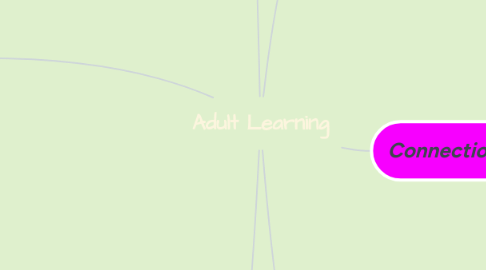
1. Causation
1.1. School Transformation
1.1.1. These are directly related to student learning. In most of these adult learning sessions the aim is the learning and the teaching at school.
1.2. Logistics
1.2.1. We do have some faculty meeting that are addressed to logistics, especially during these two years due o Covid.
2. Responsibility
2.1. Teachers
2.1.1. Teachers are involved in all the adult learning of course. However sometimes teachers are the sole designers of those learning experiences. This is based on volunteer bases. In addition to that we have the mentoring program through which teachers plan for a common SMART goal with a partner and carry on the learning process and the implementation.
2.2. Coordinators/Coaches
2.2.1. Coordinators/Coaches facilitate adult learning sessions or professional development. This is based on the school action plan, a department need or an individual need.
2.3. Subject Experts
2.3.1. These type of session are mainly carried by the subject experts. The focus of these sessions is the Content (Knowledge of content).
2.4. IT depatement
2.4.1. These sessions are mainly dedicated to the use of a particular digital tool or platform.
2.5. Key Speakers/Experts in a Particular Field
2.5.1. these sessions are done by well experts in a particular field. They area also done on demand (Catlin Tucker, Danielson Institute, Julie Stern, IB workshops, Chapter international Workshops...
3. Change
3.1. Several Aspects in the System Need to be revisited and improved
3.1.1. Form
3.1.1.1. the structure and the procedure of adult learning need to be remodified. The purpose needs to be clearer to teachers teachers should be involved in the design of their learning, they need more time to practice and implement, there should be more emphasis on collaboration between teachers. more coaching and mentoring with clear structure and expectation.
3.1.2. Causation
3.1.2.1. More emphasis should be on students learning. More time should be set to identify standards goals and analyze students work. This analyzed should guide the adult learning.
3.1.3. Connection
3.1.3.1. Teachers should have more agency. The connection should be directed to how those initiatives of innovation are impacting learning rather than as part of the school plan. This is important to share this rationale with teachers, accordingly teachers will buy in more.
3.1.4. Responsibility
3.1.4.1. More emphasis on teacher leaders ad facilitators. Listening more to teachers having what they need as the priority.
4. Connection
4.1. School Action Plan
4.1.1. The school is working on integrating technology to move into blend learning even when we go back face to face. These learning sessions are to help teacher incléments strategies in their learning and teaching and to help them make use of these technologies and tools
4.2. Authorization and Accreditation
4.2.1. The school is in the process of accreditation: Pd for collecting evidence related to IB standards and practices and to the development action plan of the school.
4.3. Department Initiatives
4.3.1. Standards based initiative are addressed in those meeting, curriculum mapping, teaching approaches are also addressed in these meeting.
5. Perspective
5.1. Teacher 1
5.1.1. Experienced a lot of success: This teacher is more of an Instruction Knower. The fact that most of our adult learning is structured and a bit directive, this teacher was able to move quickly from a non-user to a refiner. She understands the purpose and feels at ease carrying in the innovation being implements and to support others. She is now in the process of analyzing the impact of those initiative on students learning. Teacher 1 is confident and feels save enough to approach coordinators and to work cooperatively with others during the planning, implementation and reflection phase.
5.2. Teacher 2
5.2.1. Experienced a lot of challenges but moving forward: This teacher is Self-Authoring learning. She is a veteran teacher and has experienced a lot of change and top-bottom changes in which she doesn't believe in the relevancy of efficacy of these changes. This teacher is considered a resister, to an extent that others would rather not work cooperatively with her. This teacher is frankly not heard and believes that she has no agency in the changes that are happening. Accordingly she doesn't even try to implement new changes. However this teacher is now supported by having her involved more in those initiatives, taking her feedback ahead of time through informal conversations, explaining to her that the system at school is not all the time bottom up and that there are some initiatives that are top down, however as a school or section of the school we can always take those implementations (non-negotiables) and implement the our way.
6. Form
6.1. Structure
6.1.1. Grade level meeting, collaborative meetings, faculty meeting, in-service Days, single subject meetings, individual coaching sessions
6.2. Routines
6.2.1. Fixed scheduled meeting on weekly bases, trimester meeting (whole day- small groups sessions
6.3. Practices
6.3.1. Agenda sent ahead of time with purpose and objective. Tasks explained, audios and tutorials for independent work
